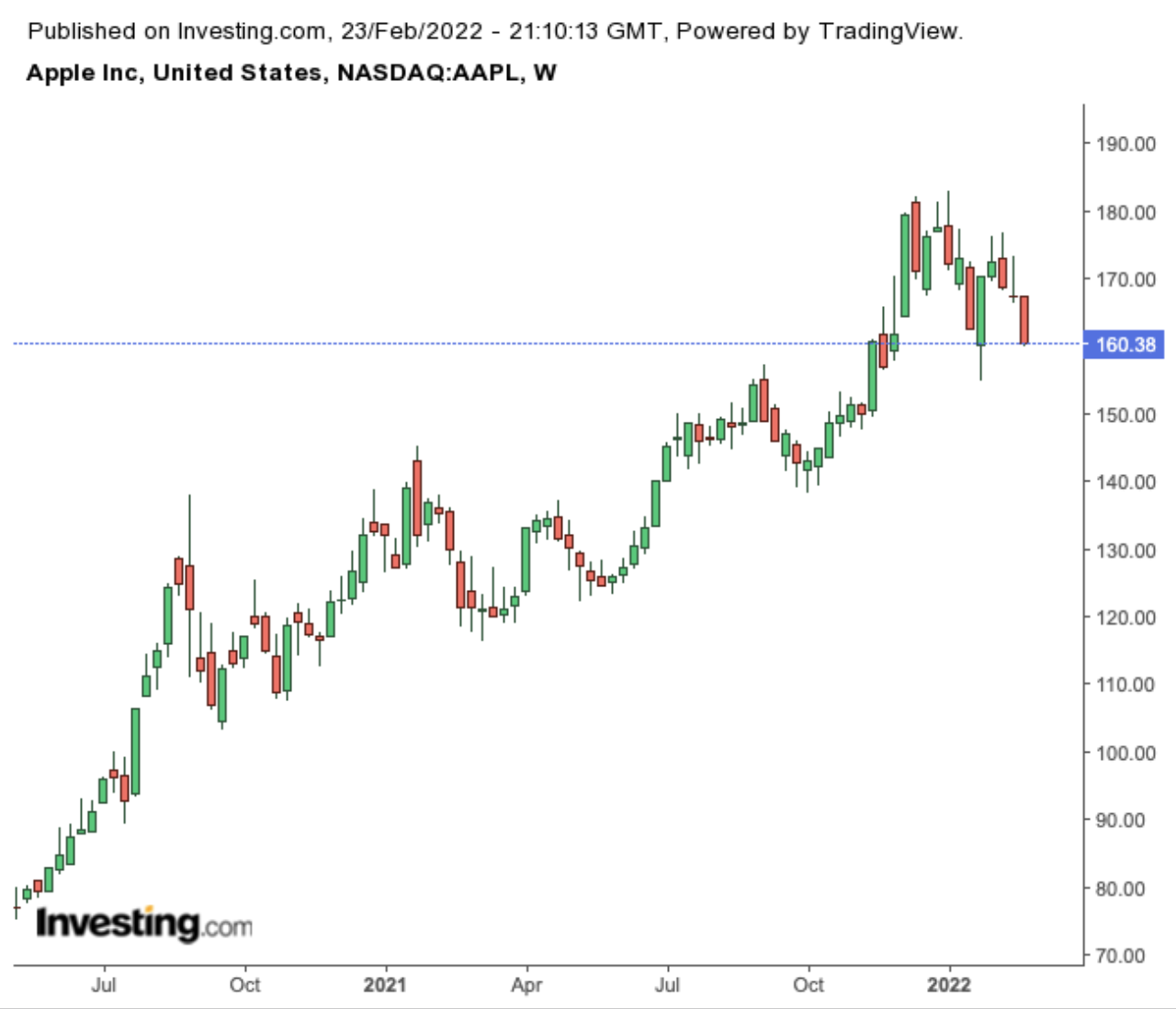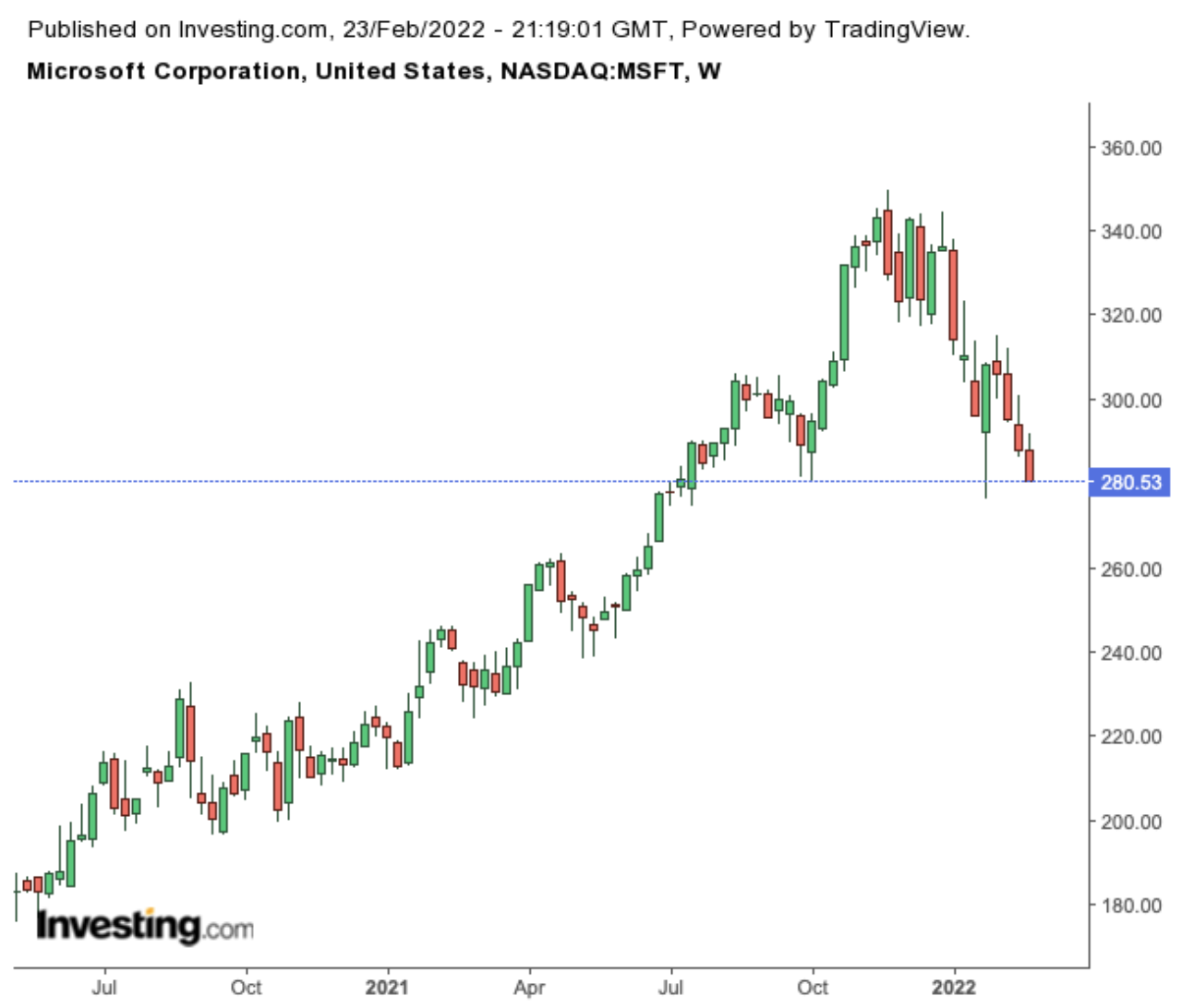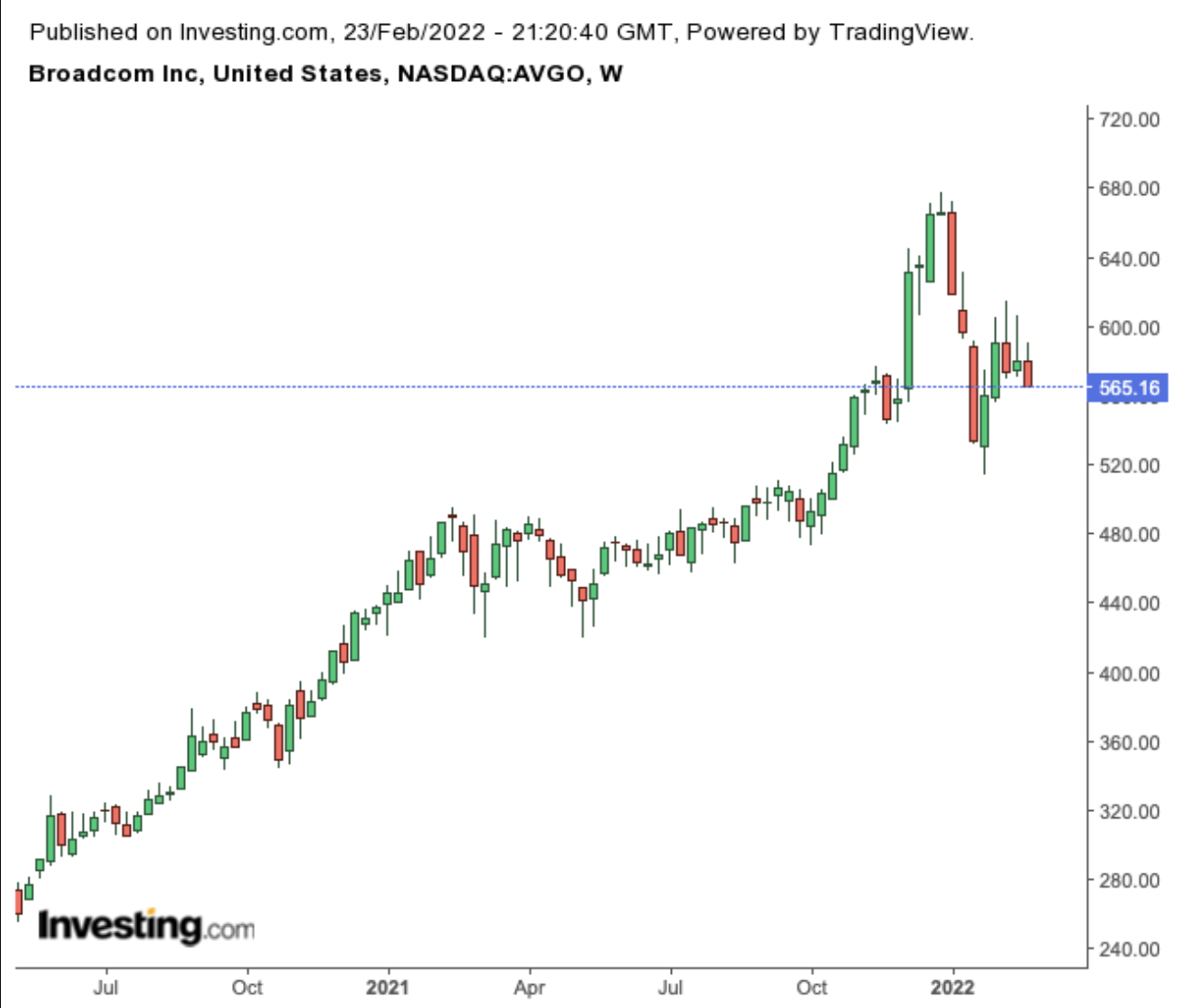If you are a buy-and-hold investor, it makes sense to keep some solid, large cap technology stocks in your portfolio. These companies can withstand wars, recessions, or pandemics better than their smaller cap counterparts, thus providing safety during times of distress.
During economic turmoil, which could potentially occur if the Federal Reserve begins to hike rates aggressively, or if Russian aggression in Europe continues to escalate, these corporate strengths are especially beneficial for investors, whether they're in search of dividend yield or not.
In addition to receiving income when you need it the most, large cap dividend stocks are also less mercurial. As such, their strong balance sheets, essential products and services, and extensive global footprint also result in reliable payouts.
Below, we’ve identified three such stocks for investors seeking income safety at a time of rising volatility:
1. Apple
Many investors view Apple (NASDAQ:AAPL) as a technology stock with little income appeal. However, the iPhone maker is one of the most cash-rich companies in the world. According to securities filings, the company’s cash pile (cash, cash equivalents, and marketable securities) currently stands at more than $200 billion as of Dec. 25.

That means the Cupertino, California-based Apple has a lot of firepower to deal with global downturns and keep income-seeking investors happy.
The stock, which closed at $160.24 on Wednesday, has what looks to be a tiny 0.51% dividend yield. But that shouldn't be considered disappointing. The company is offering a powerful combination of increasing dividends and share buybacks to boost the total return for its investors. Over the past five years, Apple hiked its dividend by almost 10% or more. The company currently pays $0.22 a share for a quarterly payout.
Moreover, in recent years Apple has been the biggest re-purchaser of its own shares among companies listed on the S&P 500. The smartphone, personal computer, and wearables maker spent $85.5 billion to repurchase shares and $14.5 billion on dividends in its fiscal 2021, which ended in September.
This strength, along with solid earnings, is one of the main reasons Apple shares have remained less volatile in the current selloff of high growth names. Though Apple stock is almost 12% for the year. Meanwhile, the tech-heavy NASDAQ 100 declined more than 18% during the same period.
2. Microsoft
Software and infrastructure behemoth Microsoft (NASDAQ:MSFT) has proven to be a great choice for buy-and-hold investors. The company’s per share dividend grew about 10% per year during the past five years. With a closing price of $280.34 at yesterday's close, MSFT's annual dividend yield is a bit under 1%; Microsoft pays a quarterly dividend of $0.62 per share.
That yield may look meager, but don’t forget that the company is still growing. Including dividend payments, Microsoft has delivered 335% in total returns over the past five years, more than double what the NASDAQ produced.
Even if the overall US economy enters a turbulent period due to higher inflation, Microsoft’s main businesses should prove to be more resilient than the competition. The company has dominant positions in office productivity software, operating systems, and server applications, the areas of the tech market where MSFT can raise prices without the risk of losing too many customers. That trend was clear in the company's last earnings report.
If you are investing for retirement, companies like Microsoft are perfect for stashing in your portfolio. These are the giants that have the power to defend their businesses and pay you for the rest of your life.
3. Broadcom
Broadcom (NASDAQ:AVGO), one of the world’s largest chip manufacturers, is another solid pick for long-term investors. The San Jose, California-based company makes smartphone parts, key components of networking equipment, and semiconductors that run home Wi-Fi gear and set-top boxes.

AVGO stock, which closed at $565.31 on Wednesday, provides a 2.54% dividend yield, with a dividend payout of $4.1 quarterly. Moreover, Broadcom's dividend growth rate has averaged about 48% over the last five years, showcasing management’s desire to reward income-seeking investors.
After reporting solid earnings in December, Broadcom was swept up in the broad market selloff of growth shares and lost about 15% for the year.
In December, Broadcom boosted its quarterly dividend by 14% and unveiled a $10 billion buyback plan. Both those moves were in line with the company’s prior commitments to return more cash to shareholders if it doesn’t find a major acquisition to pursue.
Due to AVGO’s dividend appeal, Bank of America reiterated its buy rating on the stock despite the ongoing selloff, which is bringing down the share values of semiconductor companies. In a note, the bank’s analysts said it offers “high-quality growth at a compelling valuation.”
“AVGO generates $3-$4bn of free cash flow each quarter (~50% margin) with a best-in-semis 3% dividend yield, well above semi avg. 1.2%, and with a consistent history of dividend growth.”
